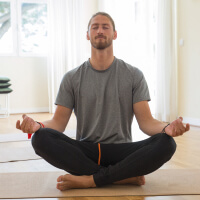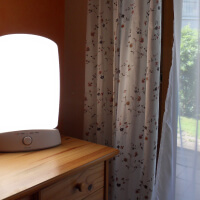
Description

Time Commitment

Suggested Frequency

Time of Day

How to Do It
- Set Room Temperature to 60–67°F (15–19°C): This is the optimal sleep range for most people.
- Switch to Lightweight Bedding: Avoid heavy comforters that trap heat.
- Improve Airflow: Use a fan, open a window, or run your AC before bed.
- Try a Cooling Pad or Pillow: Optional tools to help regulate body heat.
- Adjust Sleepwear: Wear moisture-wicking or breathable clothes.
- Make It Routine: Cool down your bedroom 30–60 minutes before bed each night.

Required Equipment
- Fan or Air Conditioner: To circulate cool air effectively.
- Light, Breathable Bedding: Cotton or moisture-wicking sheets are ideal.
- Optional: Cooling Mattress Pad or Pillow: Adds extra temperature regulation.
- Optional: Thermometer: To keep track of optimal room temperature.

Benefits
- Improves Sleep Quality: Helps you fall asleep faster and stay asleep longer.
- Enhances Physical Recovery: Cooler temperatures support muscle repair and hormone regulation.
- Reduces Night Sweats & Overheating: Prevents rest disruptions caused by excess heat.
- Promotes Relaxation: Signals your body that it’s time to wind down.
- Supports Natural Temperature Cycles: Aligns with your body’s circadian rhythm for better rest.

Why it works

Possible Side Effects
- Feeling Too Cold: May take time to find the right balance.
- Initial Adjustment: Cooler bedding may feel unfamiliar at first.

Tips
- Layer Bedding Strategically: Start cool and add layers if needed.
- Test Temperature Settings: Experiment to find what feels best for you.
- Combine with a Wind-Down Routine: Enhances the effect when paired with habits like journaling or mindfulness.

Supporting Studies and Articles
- Bedroom Temperature and Sleep
Sleeping in cooler temperatures improves sleep onset and reduces nighttime awakenings.
- Temperature and Sleep Efficiency
Cooler environments help regulate core body temperature for more efficient sleep.








